Breast Augmentation in Taiwan
Search and Compare the Best Clinics and Doctors at the Lowest Prices for Breast Augmentation in Taiwan
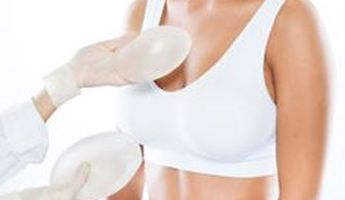
Find the best clinics for Breast Augmentation in Taiwan
With Medijump you can browse 3 facilities offering Breast Augmentation procedures in Taiwan. The cheapest price available is $6,490 in Taipei. And for the cheapest price globally, prices start from $208 in Hungary.
Breast Augmentation in Taipei
Price: $ 6,490
Hungary offers the best prices Worldwide
Price: $ 208
From 72 verified reviews
愛蜜莉, 25 April 2020
Doing rhinoplasty here is awesome! Then it does n’t hurt is my point ~~~ Then the nose becomes beautiful :)
Chicing Plastic Surgery Clinic, located in Taipei City, Taipei, Taiwan offers patients Breast Augmentation procedures among its total of 12 available procedures, across 1 different specialties. Currently, there's no pricing information for Breast Augmentation procedures at Chicing Plastic Surgery Clinic, as all prices are available on request only, whilst the national average price is approximately $6,490. All procedures and treatments are undertaken by just a small team of specialists, with 3 in total at the Clinic, and they are not accredited by any recognized accreditations institutes
Freya Aesthetic Institute, located in Taipei City, Taipei, Taiwan offers patients Breast Augmentation procedures among its total of 32 available procedures, across 2 different specialties. Currently, there's no pricing information for Breast Augmentation procedures at Freya Aesthetic Institute, as all prices are available on request only, whilst the national average price is approximately $6,490. All procedures and treatments are undertaken by the lead specialist at the Hospital, and they are accredited by ASPS - American Society of Plastic Surgeons
- Home
- Taiwan
Compare Before & After Photos of _procedure_photos.phpBreast Augmentation
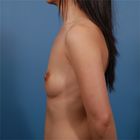
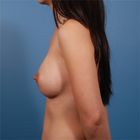
Full-side view
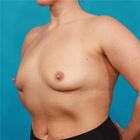
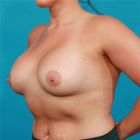
Half-side view
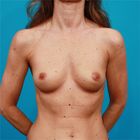
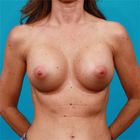
Front view
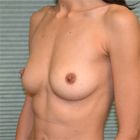
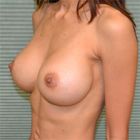
Half-side view
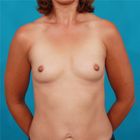
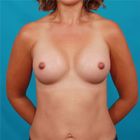
Front view
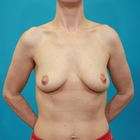
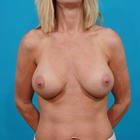
Front view
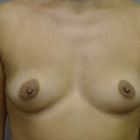
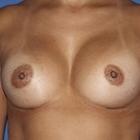
Front view
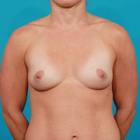
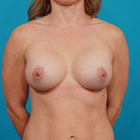
Front view
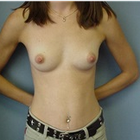
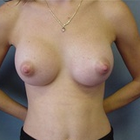
Front view
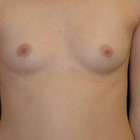
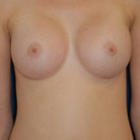
Front view
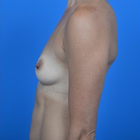
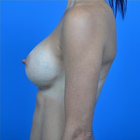
Full-side view
WHY US?
At Medijump, we're making medical easy. You can search, compare, discuss, and book your medical all in one place. We open the door to the best medical providers worldwide, saving you time and energy along the way, and it's all for FREE, no hidden fees, and no price markups guaranteed. So what are you waiting for?

Free

Best Price

Widest Selection

Risk-Free
What you need to know about Breast Augmentation in Taiwan

Breast augmentation, also known as a Boob Job or Breast Enlargement, is a surgical procedure aimed at increasing breast size, enhancing shape, or improving symmetry. In Taiwan, this procedure is carried out by board-certified plastic surgeons in accredited medical facilities, ensuring both safety and quality.
What is the cost of Breast Augmentation in Taiwan?
Prices in Taiwan are competitive, often offering savings without compromising on quality, especially when compared to costs in the US or Europe. However, factors such as surgeon’s fees, facility costs, and the type of implants affect the total cost.
What does a Breast Augmentation Procedure Involve?
The surgery involves placing breast implants under the breast tissue or chest muscles. Choices between saline or silicone implants can be made based on the desired feel and appearance. This is something your surgeon will discuss with you prior to even travelling.
How Long Should I Stay in Taiwan for a Breast Augmentation Procedure?
The length of stay in Taiwan for a Breast Augmentation is subject to various factors, such as your overall health, the specific nature of the procedure, and your individual recovery rate. Generally, Breast Augmentation surgery is an outpatient process, meaning you may be able to return home on the same day. However, a stay of up to two days might be necessary if your procedure is more intricate.
Although the hospital stay is relatively brief, it is advisable to remain in Taiwan for at least one-week post-procedure. This timeframe allows for initial recovery and a follow-up appointment with the surgeon. Moreover, in the event of any complications, prompt medical assistance will be accessible. Thorough knowledge of the recovery process and its duration is crucial for proper preparation and managing stress during treatment.
What's the Recovery Time for Breast Augmentation Procedures in Taiwan?
Post-surgery, a recovery period of one to two weeks is generally required, with follow-up visits to the surgeon. It's crucial to follow all post-op instructions for optimal healing.
Experiencing swelling and discomfort following the operation is normal, both of which should gradually alleviate with time. You will be required to wear a compression garment, take prescribed medications, and maintain a healthy lifestyle for an effective recovery.
What sort of Aftercare is Required for Breast Augmentation Procedures in Taiwan?
Post-operative care is critical for the success of a Breast Augmentation. The initial recovery phase usually includes prescribed medications to alleviate pain and avert infection. Individuals can normally resume everyday activities within a few weeks, depending on their healing pace and bodily responses. However, it is advisable to refrain from vigorous activities for a minimum of six weeks post-procedure.
What's the Success Rate of Breast Augmentation Procedures in Taiwan?
In Taiwan, Breast Augmentation boasts a relatively high success rate, which contributes to its immense popularity among individuals seeking improvements in their physical appearance. Numerous patients have reported satisfaction and enhanced confidence after undergoing the procedure, making it a widely favoured cosmetic surgery.
Are there Alternatives to Breast Augmentation Procedures in Taiwan?
In Taiwan, there are several alternatives to the Breast Augmentation. If you're considering breast augmentation strictly for cosmetic reasons and prefer non-surgical options, various suitable methods are available. Alternatives include fat grafting, hormonal therapy, and natural remedies. Fat grafting, also known as fat transfer, involves removing fat from different body parts and injecting it into your breasts. This approach is regarded as safer because it employs the body's tissue, minimizing complications.
What Should You Expect Before and After the Procedure?
Prior to the procedure, your surgeon will discuss your expectations and the anticipated outcomes of your Breast Augmentation. The preoperative consultation comprises an in-depth conversation about your medical history, a physical examination, and an outline of the procedure and postoperative care. Open and candid communication with your healthcare provider is crucial at this stage to ensure the treatment matches your objectives.
Post-procedure, initial swelling and discomfort are normal and can be managed with prescribed medication. It's vital to adhere to your surgeon's post-operative guidelines, which include caring for surgical incisions, taking prescribed medications, and attending follow-up appointments. As swelling subsides and incision lines fade gradually, your enhanced breast profile will become apparent.
Keep in mind that the decision to pursue a Breast Augmentation is deeply personal and should not be made hastily. Allocate time to consider the advantages and drawbacks, and ensure you are well-informed.
What are the Risks and Complications of Breast Augmentation Procedures in Taiwan?
As is the case with any surgical intervention, Breast Augmentation comes with its own set of risks and potential complications that need to be considered. These may include infections, bleeding, alterations in nipple or breast sensations, implant leakage or rupture, development of scar tissue, and unsatisfactory outcomes that could necessitate further surgeries.
Some individuals may also encounter complications tied to anesthesia, such as respiratory problems and reactions to medication. The psychological ramifications should not be overlooked, considering surgical procedures can impact mental well-being. An extensive conversation with your healthcare provider about these potential risks remains a key component in making an informed choice.
How to Prepare for Breast Augmentation in Taiwan?
Thorough preparation plays a significant role in the success of your Breast Augmentation. Before the surgery, you must have detailed conversations with your surgeon about your medical background, allergies, current medications, and lifestyle habits such as smoking or alcohol consumption. You may need to cease certain medications and habits, including smoking, weeks before the procedure, as they can influence the healing process.
Practical preparations like organizing for someone to be with you on the day of the surgery, scheduling sufficient time off work for recovery, and establishing a comfortable space at home for recuperation can contribute to a smoother post-operative phase. Your surgeon's team will also advise you on pre-operative fasting and hygiene guidelines.
What are some Common Misconceptions about Breast Augmentation?
Despite its widespread popularity, numerous misconceptions surround the Breast Augmentation. One such misconception asserts that breast implants are permanent. In actuality, breast implants may require replacement after 10-15 years, with the specific timeframe depending on individual health and lifestyle factors. Another false assumption is that breast augmentation solely serves vanity purposes. In reality, many patients undergo this procedure following mastectomy or as part of gender-affirming surgery.
A further common myth suggests that breast augmentation hinders breastfeeding. While a few instances might affect breastfeeding, the majority of individuals with breast implants can successfully breastfeed.
Whilst the information presented here has been accurately sourced and verified by a medical professional for its accuracy, it is still advised to consult with your doctor before pursuing a medical treatment at one of the listed medical providers
No Time?
Tell us what you're looking for and we'll reachout to the top clinics all at once
Enquire Now

Popular Procedures in Taiwan
Prices Start From $834

Prices Start From $500

Prices Start From $93

Prices Start From $85

Prices Start From $477

Prices Start From $931

Recommended Medical Centers in Taiwan for Breast Augmentation

- Interpreter services
- Translation service
- Religious facilities
- Medical records transfer
- Medical travel insurance
- Health insurance coordination
- TV in the room
- Safe in the room
- Phone in the room
- Private rooms for patients available

- Interpreter services
- Translation service
- Religious facilities
- Medical records transfer
- Medical travel insurance
- Health insurance coordination
- TV in the room
- Safe in the room
- Phone in the room
- Private rooms for patients available

- Interpreter services
- Translation service
- Religious facilities
- Medical records transfer
- Medical travel insurance
- Health insurance coordination
- TV in the room
- Safe in the room
- Phone in the room
- Private rooms for patients available

- Interpreter services
- Translation service
- Religious facilities
- Medical records transfer
- Medical travel insurance
- Health insurance coordination
- TV in the room
- Safe in the room
- Phone in the room
- Private rooms for patients available

- Interpreter services
- Translation service
- Religious facilities
- Medical records transfer
- Medical travel insurance
- Health insurance coordination
- TV in the room
- Safe in the room
- Phone in the room
- Private rooms for patients available
Breast Augmentation in and around Taiwan
About Taiwan
Whilst still a part of the Republic of China, the small island of Taiwan maintains a wealth of ancient Chinese culture and traditions mixed with modern-day Western inspirations. With its food-loving locals and award-winning whiskeys, Taiwan is a land of surprises. With 14 JCI accredited facilities in Taiwan, Taipei, the capital, is home to most, many of which are part of the University Hospitals and offer a range of specialist tertiary care. The country welcomes an ever-increasing number of medical tourists each year, many of which travel for Breast Augmentation procedures. Medical Tourists mostly travel from the mainland or from within the region.
Popular parts of Taiwan
Taiwan is one of the most densely populated countries in the world with 23.5 million inhabitants. The country has amazed tourists with its dynamic cities, vibrant culture, interesting history, and incredible natural scenery.
- Taipei is the capital of Taiwan. It is the financial, political, and cultural center of the country. The city is influenced by Chinese culture as well as Japanese, Southeast Asian, and American. There are many things to enjoy in this city, such as delicious food in Rahoe Night Market, enjoy a bird’s eye view of Taipei from Taipei 101 Observatory, visit the incredible Chiang Kai-shek Memorial Hall, and be inspired by the city’s many museums.
- Kaohsiung is Taiwan’s largest port. It’s an urban city that embraces its cultural venues. The most popular tourist destination is the Lotus Pond, a beautiful artificial lake filled with lotus plants and surrounded by temples. Tourists can also visit Pier-2 Art Center, see the Dome of Light, explore Cijin Island, or visit the Fo Guang Shan Monastery.
- Tainan, as the oldest city in Taiwan, has a fascinating culture and history. For historical sights, tourists can visit the Anping Fort, Anping Tree House, or learn Taiwanese embroidery. The city is now filled with quaint cafes tucked within the alleys.
- Hualien has breathtaking natural beauty. It’s the perfect place for tourists who want to get away from busy cosmopolitan cities. Visit the Eternal Spring Shrine, check out the popular Taroko Gorge, fall in love with Qingshui Cliffs, hike the Shakadang trail, and eat the amazing food.
- Taichung is a lively city located in the west-central part of the island. Taichung offers many unique things to see and do. National Taichung Theater will leave tourists in awe by its beautiful architecture. National Taiwan Museum of Fine Arts, Rainbow Village, Gomei Wetlands, Miyahara, and Fengjia Night Market are among the most popular tourist attractions.
Weather and Climate in Taiwan
- Spring starts in March and lasts until May. The average temperature is between 18°C and 24°C. Early rain showers and thunderstorms begin in this season. Heavy rainfall hit the island around mid-May.
- Summer can get extremely hot and humid with an average temperature of 27°C to 30°C. The season starts from June to August. Summer is also the wet season and typhoons are a real possibility especially in July and August. This is the peak season for tourism.
- Autumn has pleasant weather conditions. The rains decrease and the heat will drop. The season starts from September to November with an average temperature of 21°C to 27°C.
- Wintertime is from December to February and it is the coolest and driest season of the country. The average temperature drops to 16°C - 18°C.
Getting Around in Taiwan
Taiwan Taoyuan International Airport is the main airport in the country, located about 40km west of Taipei in the Dayuan District, Taoyuan. It is the hub for 6 airlines including two of Taiwan’s major airlines, China Airlines, and EVA Air. It has international connections with almost every country in the world. The airport serves major airlines as well as budget airlines such as Air Asia, Eastar Jet, Air Busan, and Tiger air Taiwan. There are other airports that serve international and domestic flights such as Taichung Airport, Tainan Airport, Siaogang Airport, and Taipei Songshan Airport.
Tourists arriving at Taiwan Taoyuan International Airport have a variety of transport options such as buses, taxis, car rentals, and Taoyuan Airport MRT. Buses are the cheapest option to get to the city center. Tourists who head towards the Taipei 101 area should take Bus no. 1960, while bus no. 1819 and 1961 will take tourists near Taipei Main Train Station.
Taxis are available in Terminal 1 and Terminal 2’ arrivals lobby. The fare is based on a meter and will usually cost around 1,200 TWD (40.50 USD). A journey to the city center takes about 50 minutes and taxis operate for 24 hours.
Taoyuan Airport MRT is the fastest way to reach Taipei’s city center. It will take tourists to Taipei Main Station in 35 minutes and costs 160 TWD (5.40 USD). The MRT operates from 6.05 am to 11.35 pm.
Tourists can travel around Taiwan by normal train (TRA). It is an affordable option; a train ride from Taipei to Kaohsiung costs around 845 TWD. Tourists who need a quicker travel time can opt for Taiwan High-Speed Train (HSR). The train travels from Taipei to Kaohsiung in just 90 minutes.
The cheapest way to travel around Taiwan is by bus. Buses are readily available and will reach small villages and mountain resorts. The country provides Taiwan Tourist Shuttle bus system that offers 42 routes to more than 100 tourist destinations.
Taxis and MRT is the best way to travel around big cities. In Kaohsiung, getting around in a bicycle is the best way to explore as it is one of the most bicycle-friendly cities in Taiwan.
Tourist Visas in Taiwan
Citizens of 65 countries do not require a visa to visit Taiwan and can stay for up to 90 days. Nationals of Turkey can obtain a visa on arrival valid for 30 days. It is best to check to the nearest embassy or consulate for visa requirements. Since January 2016, Taiwan offers an eVisa program for 18 countries including Saudi Arabia, Peru, Oman, and United Arab Emirates.
Additional Information
- Local Currency: The local currency is the New Taiwanese Dollar (TWD). 1 USD converts to 31.98 TWD.
- Money & Payments: ATMs are widely available except in villages. They’re usually located in convenience stores and banks. Credit cards are accepted in hotels and top-end restaurants. Always carry cash because small stalls and night market joints only accept cash. Tipping is not mandatory but is still appreciated.
- Local Language: The national language is Hakka, Mandarin, Taiwanese Hokkien, Matsu, Formosan languages, and sign language. English is common, especially in the tourism area. English is spoken more in Taipei.
- Local Culture and Religion: Taiwan has diverse religious beliefs. Buddhism and Taoism are two of the biggest religion in the country followed by Christianity, Yiguandao, Tiandism, Miledadao, Zailiism, and Xuanyuanism.
- Public Holidays: Taiwan celebrates Chinese New Year for a week in February. The country hosts several festivals such as Lantern Festival in February, Dragon Boat Festival in June, and Mid-Autumn Festival in September.
Popular Searches
- Plastic Surgery in Thailand
- Dental Implants in Thailand
- Hair Transplant in Thailand
- Breast Augmentation Thailand
- Gastric Sleeve in Thailand
- Gender Reassignment Surgery in Thailand
- Laser Hair Removal in Bangkok
- Botox in Bangkok
- Dermatology in Bangkok
- Breast Augmentation in Bangkok
- Coolsculpting in Bangkok
- Veneers in Turkey
- Hair Transplant in Turkey
- Rhinoplasty in Turkey
- Stem Cell Therapy in Mexico
- Rhinoplasty in Mexico
- Liposuction in Mexico
- Coolsculpting in Tijuana
- Rhinoplasty in Korea
- Scar Removal in Korea
- Gastric Sleeve in Turkey
- Bone Marrow Transplant in India
- Invisalign in Malaysia
- Plastic Surgery in the Dominican Republic
- Tummy Tuck in the Dominican Republic
- Plastic and Cosmetic Surgery in Poland
- Rhinoplasty in Poland
- Hair Implant in Poland
- Dental Implants in Poland
- IVF in Turkey


